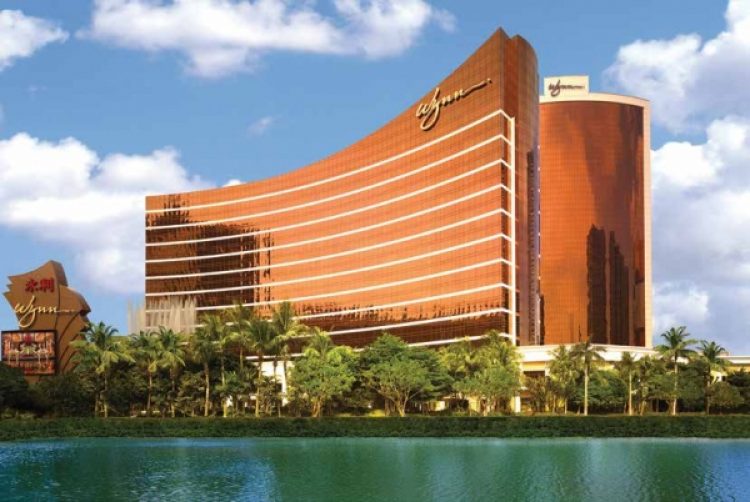With Wynn Resorts facing regulatory probes in two separate US jurisdictions and the not-so-small matter of re-licensing in Macau in the next few years, the issue of suitability in the gaming industry has never been more prominent.
Suitability, the quality of being right or appropriate for a particular purpose or situation. More than a vaguely defined concept, the term is a pillar of the modern, regulated gaming industry. Every entity and individual associated with gaming, even if sometimes loosely, has had, at some point in its life, to produce evidence of its adequacy to pursue certain business or to take on a position.
Despite its omnipresence, the issue of suitability has never gained so much global significance (and media attention) as it has since The Wall Street Journal published a story detailing several allegations of sexual misconduct against Steve Wynn, then Chairman and CEO of Wynn Resorts Limited. The article and media backlash that followed prompted investigations into Mr Wynn’s suitability to be involved in gaming in the states of Nevada and Massachusetts. Pending such investigations, Mr Wynn resigned from all his positions in Wynn Resorts Limited and eventually disposed of his entire shareholding in the company. Less than two months after WSJ broke the story for the first time, Mr Wynn, once a gaming industry legend, was no more.
The downfall of Mr Wynn was not limited to the United States either. It instead took on a global dimension when, on 7 February, he resigned from his position of Director, Chairman of the board of directors and Chief Executive Officer of Wynn Resorts (Macau) S.A. – the licensed entity that operates the Wynn casinos in Macau – and from its Hong Kong listed controlling shareholder, Wynn Macau Limited.
According to the company’s announcement to the Hong Kong Stock Exchange, Mr Wynn’s decision was taken as “a result of recent publicity”. His resignation was “reluctantly accepted” by the board despite no investigation into Mr Wynn’s suitability having been announced by the Macau gaming regulator. In fact, none of the allegations made against Mr Wynn referenced any misconduct that had taken place in Macau or involved any employees of its Macau entity.

Following the announcement, word broke on the street that a decision ruling Mr Wynn unsuitable by a US regulator would no doubt put in peril its Macau gaming license. Curiously, opinions concurred in attributing such risk not to an incoming objective judgement of the Macau authorities on Mr Wynn’s adequacy to operate casinos, but rather to the current geopolitical situation. In other words, Wynn would be a victim of current US/China trade relations and its properties are ripe for the rescue by a white knight riding on Chinese capital.
Despite the shocking nature of Mr Wynn’s alleged behavior, his demise will no doubt serve as a case study on the issue of suitability in the gaming industry. From the several legal, business and ethical ramifications of the topic, there are two that draw my attention.
Firstly, I believe it is important to understand the importance that regulators place on a review of character versus the publicity drawn to such character in one’s assessment of suitability. Using Mr Wynn’s example: what truly prompted the investigations on his suitability? Was it the obvious wrongfulness of his alleged conduct and the lack of good character it implies or the adverse publicity it drew to the company he chaired and the jurisdictions where it operated?
The discussion may seem purely theoretical. It certainly seems so in the case of Mr Wynn, as the result would likely be the same. However, in the era of social media and fake news, one’s reputation has never been less dependent on his/her actual behavior. A better understanding of the issue would no doubt be beneficial for all industry stakeholders. If nothing else, it would allow for a better allocation of resources in maintaining the highest standards of suitability.
Secondly, in an increasingly global industry it is imperative to discuss the implications of a person being found unsuitable to such person’s gaming interests or associations in a different jurisdiction. In fact, one’s adequacy to have a business association with gaming requires his or her conformance with societal expectations and norms. Despite our short memories and increased globalized existence, it is undisputable that these still vary according to time and location. What may be considered as unquestionable evidence of a lack of good character in one place may simply be viewed as the cost of doing business in another.
A good illustration of the cross-border impact of a person being found unsuitable may be drawn from the Special Report of the Division of Gaming Enforcement of the State of New Jersey on its investigation of MGM’s Macau joint venture with Pansy Ho. The 2009 report recommended that MGM be directed to disengage itself from any business association with Ms Ho due to her alleged dependence upon her father, Dr Stanley Ho. In the conclusion of said report, Dr Ho was also found to be unsuitable due to his alleged connections with organized crime through the inception of the VIP business model in his company STDM’s casinos in the eighties and nineties.
The VIP business model, which has since been adopted by all Macau gaming operators, was not simply a local idiosyncrasy, it was considered essential in sustaining Macau as a gaming destination. As some realists may argue, it was also, back in those days, a way to keep pervasive influences in society under control and maintain a certain balance in a local way of living which was highly dependent on gaming revenue. It was therefore unthinkable that the suitability of Dr Ho, who has a place in the history of Macau as Mr Wynn does in the history of Las Vegas, would ever be questioned in Macau on the grounds alleged by the Jersey Report.
In the end, MGM announced it would stop doing business as a gaming licensee in New Jersey. Today, it still operates in Atlantic City through its Borgata Hotel & Casino. Ms Ho was also found suitable to do business with the company by both the Mississippi Gaming Commission and the Nevada Gaming Control Board.
We will never know if the outcome of Ms Ho’s venture with MGM would have been different if she were found to be unsuitable to do business in Nevada. However, the Jersey Report serves to illustrate that the approach to suitability in gaming varies substantially from jurisdiction to jurisdiction. In fact, regulators around the world are far from having a gold standard on which to base their decisions to exclude unwanted individuals or entities from having business associations with gaming.
The lack of international standards of suitability, at a time where the drivers of the industry are global corporations with businesses spread throughout a multitude of jurisdictions, has generated a regulatory maze, only navigable by investing heavily in people, tools and procedures. Some may argue that this is simply the cost of doing business in a highly profitable market.

However, that does not preclude the industry from taking a step back from the tangle of license applications and suitability investigations and addressing the issues at its core. Why does suitability really matter? Who should be considered suitable? How can we assure that the industry is free from unwanted influences in a way that is transparent and fair to all its stakeholders?
In the search for answers to these questions, it is relevant to understand how the two most successful gaming markets address the issue of suitability within their respective borders.
The Nevada Gaming Regulations determine that a person shall be found suitable if they are (a) a person of good character, honesty and integrity, (b) a person whose background, reputation and associations will not result in adverse publicity for the State of Nevada and its gaming industry and (c) a person with adequate business competence and experience for the role or position for which an application is made.
The Macau Gaming Law determines that in the process of verifying the suitability of gaming concession bidders, the government will take into consideration, amongst others, the following criteria: (i) the experience and reputation of the bidder; (ii) the nature and reputation of the bidder’s group entities, particularly of its controlling shareholders and (iii) the character and reputation of the entities strictly associated with the bidder.
Despite taking different approaches, both normatives agree on three main vectors of suitability: character, reputation and experience. However, none of them prescribe, perhaps rightly so, what the essential components of each vector are, the lack of which would render someone unsuitable. In leaving the concepts open, regulators are given the power and the responsibility to produce fair judgements on a case-by-case basis. Just as importantly, they are given the flexibility to adapt their approaches to changing societal expectations towards gaming and the people that are involved in it.

In conducting their own investigations on the suitability of an entity or individual, regulators are also reserving their rights to independently act upon each other’s findings. This is where the issue of substance vs perception gains a cross-border dimension in the realm of suitability assessments. Should a regulator declare an individual unsuitable based solely on the possible adverse publicity the person’s declaration of unsuitability in another reputable jurisdiction may bring to its own market? Or, should it make its assessment exclusively on the grounds that certain facts or associations affect someone’s integrity in regards to their association with gaming, according to the prevailing social values in its own place and time?
Ten years ago, Macau responded positively to the second question in its silent approach to Ms Ho’s case. Will it do the same today in respect of Mr Wynn and his former company?
Whatever the answer to that question may be, we must all agree that the assessment of one’s suitability should always be driven by the desire to have the gaming industry led under the highest ethical standards. To let suitability investigations serve other purposes, may they be geopolitical, commercial or otherwise, would no doubt shake the pillar of the industry with unforeseeable consequences. Like everything else, such consequences will be felt globally.
When looking into one’s suitability, we are assessing the moral principles that govern that person’s behavior in conducting his or her business activity. Ethics are therefore the ends of a suitability investigation. However, in that process, let us not forget that ethics should also guide its means.


































